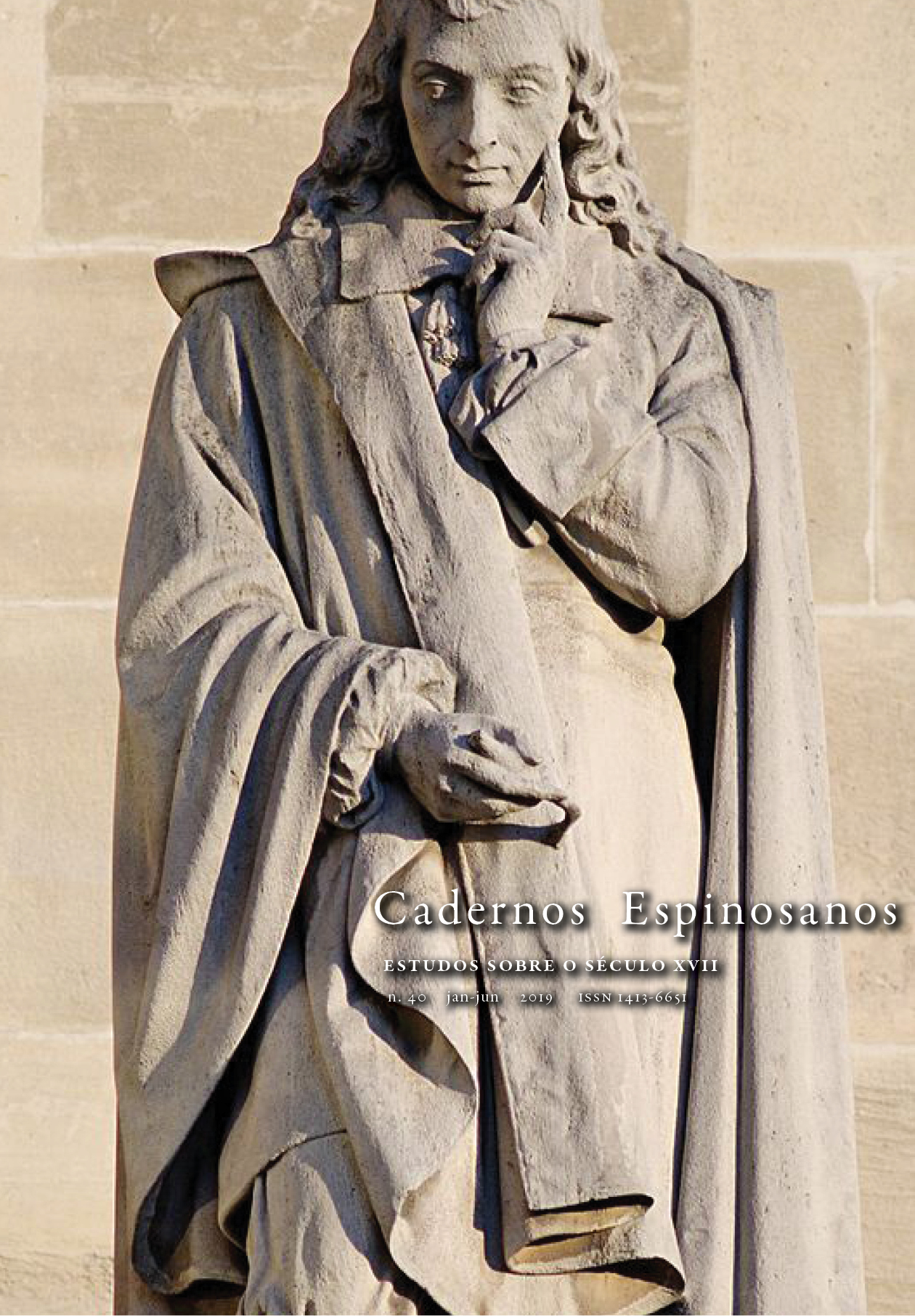SKEPTICISM IN THE PHILOSOPHY OF BLAISE PASCAL
DOI:
https://doi.org/10.11606/issn.2447-9012.espinosa.2019.159456Keywords:
Blaise Pascal, Skepticism, Skeptical Arguments, Original Sin, Nature, Natural LightAbstract
Skepticism plays a decisive role in the Pascalian philosophy. In fact, widely influenced by authors like Michel de Montaigne and Pierre Charron, Blaise Pascal contradicts the general tendency of the century of the Great Rationalism, raising deep objections related to the pretention – typically Cartesian – of knowing the Truth in a certain and secure way. As one can apprehend from a quick reading of his writings, the Pascalian work is all pervaded by a remarkable distrust of our supposed capacity to acquire unshakable certainties about anything: distrust, which, by the way, is in profound concordance with the shocking position of the author concerning the consequences of the original sin. Thus, what we intend in this article is: i) to present the skeptical arguments subscribed by Pascal in his main philosophical work - the Thoughts; and ii) analyzing the work On the geometrical spirit and the art of persuasion, to indicate that not even the knowledge offered by the natural light can free us from doubts raised by skeptical argumentation.
Downloads
Downloads
Published
Issue
Section
License
Autores que publicam nesta revista concordam com os seguintes termos:
- Autores mantém os direitos autorais e concedem à revista o direito de primeira publicação, com o trabalho simultaneamente licenciado sob a Licença Creative Commons Attribution que permite o compartilhamento do trabalho com reconhecimento da autoria e publicação inicial nesta revista.
- Autores têm autorização para assumir contratos adicionais separadamente, para distribuição não-exclusiva da versão do trabalho publicada nesta revista (ex.: publicar em repositório institucional ou como capítulo de livro), com reconhecimento de autoria e publicação inicial nesta revista.
Authors who publish in this journal agree to the following terms:
b. Authors are authorized to take on additional contracts separately, to non-exclusive distribution of the article published in this journal (ex.: to publish in institutional repository or as part of a book), with an acknowledgment of its initial publication in this journal.


